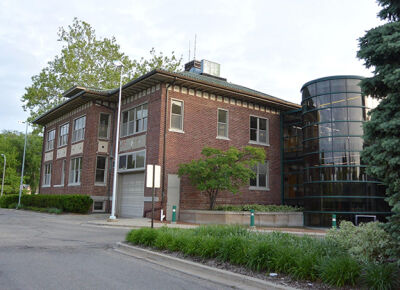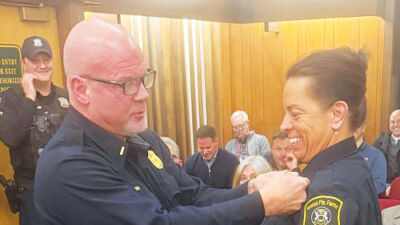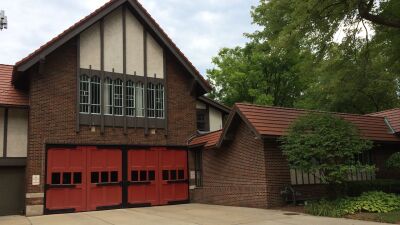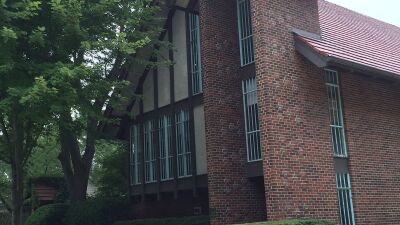GROSSE POINTE PARK — In another of the multiple efforts Grosse Pointe Park officials are taking to reduce the influx of stormwater into the sewer system, work is expected to start next month to begin separation of stormwater from the sanitary sewer system on Jefferson Avenue.
City Manager Nick Sizeland told the Park City Council during a Feb. 3 council meeting that the infrastructure project has been in the discussion and planning stages since December 2022. City Attorney Morgan Martin said work is expected to start at around the middle of April.
Sizeland said the project will be done over two phases, with Phase I to involve sewer separation along Jefferson from Maryland to Lakepointe streets. Phase II, which city officials said will take place in the future, will cover the stretch of Jefferson from Lakepointe to Somerset Avenue. Sizeland said the storm sewer will be built in the East Jefferson Avenue right of way, which is managed by the Wayne County Department of Public Services. The city received a permit from the county to do this work last year and then the city’s engineers with OHM Advisors sought bids for the work.
The Park separated most of its storm and sanitary sewer system circa 1998. The last payment toward a special assessment that covered the cost of that project was made in 2018.
“Although we separated a significant amount of the city… we still have quite a bit of (stormwater) flow into the sanitary system,” said City Engineer Patrick Droze, of OHM Advisors.
Park officials wanted to address separation along Jefferson because it’s expected to help reduce the amount of water entering the city’s sewer system, thus hopefully helping to prevent future flooding and basement backups during heavy rains, like the ones that happened during the summer of 2021. Sizeland said officials and engineers identified this project “as a priority.”
“It’s the single biggest nonseparated (area)” in the Park, Mayor Michele Hodges said.
Droze said Jefferson sewer separation will reduce the risk of flooding, although the city also needs to continue to address other mitigation efforts as well, including downspout disconnection and sewer separation in alleyways.
“We still need to work to dry out the system,” Droze said.
City Councilman Max Wiener said the Park’s sewer system is getting “drier and drier” and more resilient each year because of projects like this one, and he said separation on Jefferson will be an important piece of that puzzle.
“It makes a huge difference,” Wiener said.
When the city drafted its budget last May for the 2024 to 2025 fiscal year, Sizeland said they set aside about $400,000 toward this project.
“It turns out the cost was quite a bit more than that,” Martin said.
A low bid — out of seven total bids — from New Haven, Michigan-based Pamar Enterprises Inc. came in at $962,217.
Because the project will benefit the forthcoming A. Paul and Carol C. Schaap Center for the Performing Arts and the Richard and Jane Manoogian Art Gallery in the Park — located next to Park City Hall on Jefferson — Martin said Paul Schaap and the Urban Renewal Initiative Foundation agreed to contribute $600,000 toward this project.
The URIF was, at press time, in the process of building what is usually referred to as the Schaap Center, which is expected to open later this year.
“Taxpayers would have been responsible for the entire cost if not for the Schaaps,” Hodges said.
Paul Schaap and his late wife, Carol, were two of the earliest and largest donors toward the building that will bear their name.
The council voted unanimously Feb. 3 to approve a sewer separation agreement between the city and the URIF, award the contract to low bidder Pamar and approve a budget resolution reflecting the actual cost of the project.
Martin said Phase I of the sewer separation project is expected to be substantially completed by Aug. 1 and fully completed by Aug. 15.
 Publication select ▼
Publication select ▼

























